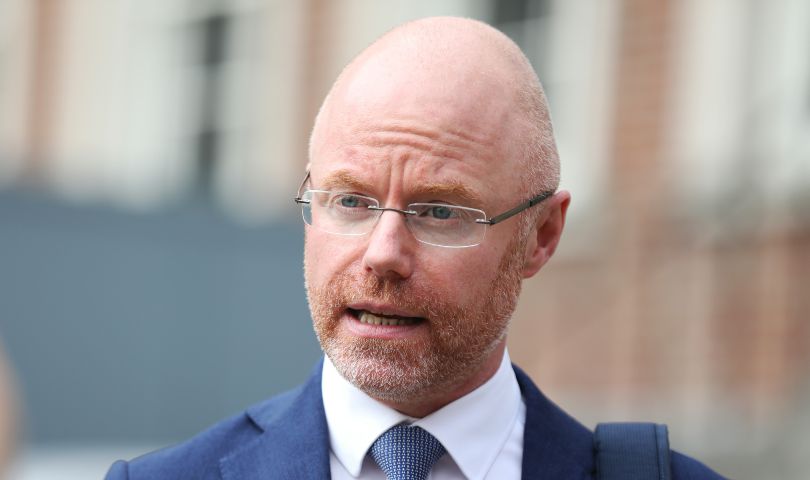The new Health Service Executive (HSE) boss has admitted the organisation is too 'top heavy'.
Bernard Gloster, the former CEO of child and family agency Tusla, said he did not accept that change was impossible for the HSE, as he now leads the organisation which has a budget of €23bn and 140,000 staff.
Assessing the challenge before him, he said: "The reality is that today the health service requires a very hands-on approach, right from the top of the organisation out to where the front line is delivered."
Mr Gloster said he had met all the senior managers, and had told them that the level of delayed discharge from hospitals was unacceptable.
He told RTÉ Radio's Today With Claire Byrne programme: "At the moment, my view of the HSE is there are a lot of very talented people working there, including at senior management level, but the HSE is a very centralised, very top-heavy organisation at the centre." He added that it is "very difficult for people working outside the centre, working in hospitals and community centres, to be able to make timely decisions."
He said that rather than wait for the Sláintecare plan's proposed regional health areas, he would immediately bring the 15 hospital group chief executives and community health care chief officers "right into the decision-making process".
Mr Gloster admitted that he had private health insurance, and said the need for people to have private insurance was a reality of the health service right now. He said that if the Sláintecare plan could be fully implemented, and waiting lists were reduced, people may no longer feel that.
He said the critical point of waiting lists was not how many people were on them, but how long people were waiting. He said progress was being made, "but there is an awful lot more we can do".
"It is something that's going to take a number of years to step towards, but I do think there are significant changes to make it better for people today," he said.
Mr Gloster said he would also focus on shortening the time it takes to recruit more staff, how to train more staff and how to avoid burnout.
A further line of work will see improvements in the HSE's computer system, following the cyber attack last year, and the adoption of new e-health medical technology to allow people to be treated and monitored at home.
Mr Gloster also said that cutting hospital waiting lists by 10% this year was a realistic target, adding that last year's targets were 'probably overly ambitious' and that the Omicron wave of Covid-19 compromised the ability to deal with waiting lists.
This year's action plan allocates €363m from the Budget to help reduce waiting list numbers, which stood at over 823,000 in January.
Sinn Féin health spokesman David Cullinane has criticised Health Minister Stephen Donnelly's Waiting List Action Plan for 2023, saying it "lacks ambition and lowers targets".
He said that the action plan last year aimed to cut waiting lists by more than 130,000, but failed to make any significant impact. The total number of patients on all hospital waiting lists declined by less than 10,000 last year. Mr Cullinane said: "Last year's short-term, single-year plan failed to come close to its targets. Waiting lists were reduced, at a generous count, by 4%. The overall effect was closer to 1%. The target was an 18% reduction, which is now down to 10%.

"The minister has failed to deliver real change in multiannual planning, workforce development, primary and community care reform, or the delivery of essential elective hospitals and surgical hubs."
A spokesman for the Health Minister said: "As Minister Donnelly said on radio today, last year saw the first reduction in waiting lists since 2015 and since the peak during Covid we have now seen a 24% reduction in those waiting longer than the Sláintecare targets.
"The minister believes the target set for 2023 is realistic and ambitious."








